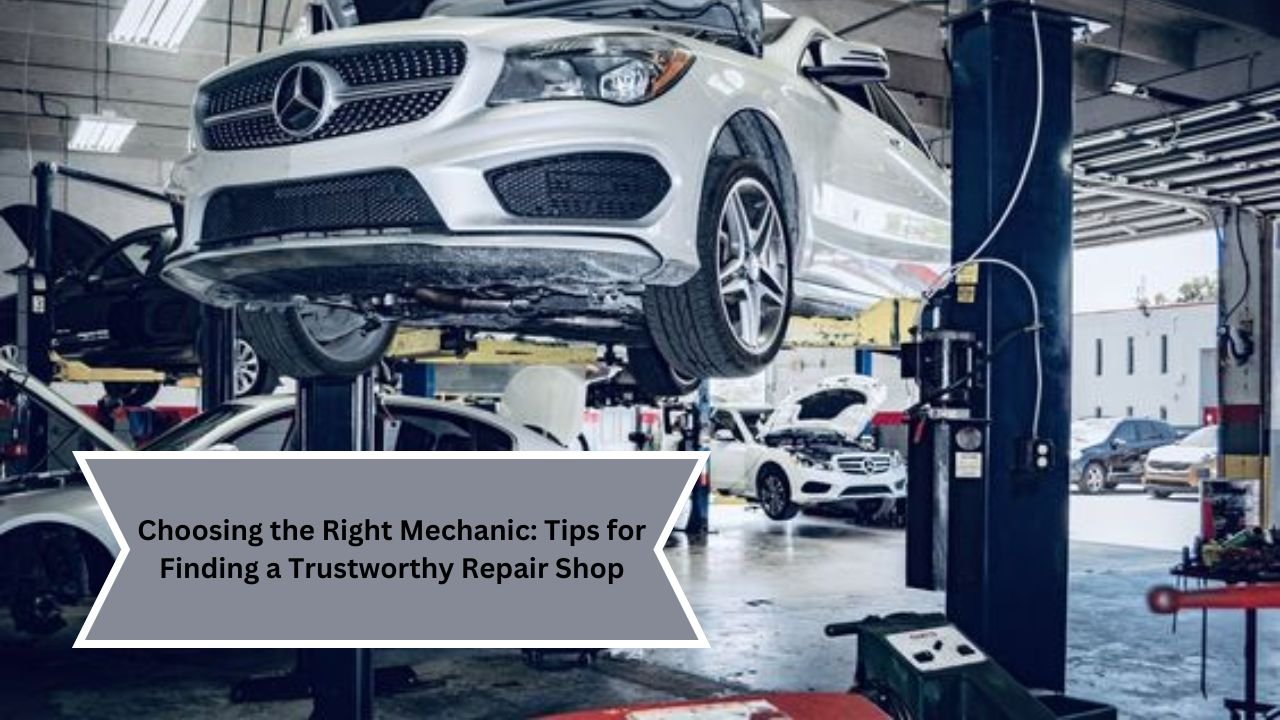Finding a reliable mechanic can be a daunting task for many car owners. With the vast array of options available, it’s crucial to choose a repair shop that you can trust with your vehicle. A good mechanic not only ensures that your car runs smoothly but also saves you time and money in the long run. This article provides essential tips for selecting the right mechanic and building a lasting relationship with your automotive repair shop.
1. Research and Recommendations
Ask for Recommendations
Start your search by asking friends, family, and coworkers for recommendations. Personal experiences can provide valuable insights into the quality of service a repair shop offers. If someone had a positive experience, it’s likely that you will too.
Check Online Reviews
In addition to personal recommendations, online reviews can be incredibly helpful. Websites like Yelp, Google Reviews, and the Better Business Bureau provide a platform for customers to share their experiences. Look for shops with consistently high ratings and read through both positive and negative reviews to get a balanced view.
Research Qualifications
Check if the mechanic and the shop are certified. Look for certifications from recognized organizations such as the National Institute for Automotive Service Excellence (ASE). This certification indicates that the mechanics have met specific standards of knowledge and expertise.
2. Evaluate the Shop’s Environment
Cleanliness and Organization
A well-organized and clean repair shop often reflects the quality of work that is performed. When you visit, take note of the shop’s cleanliness and organization. A tidy workspace indicates that the mechanics take pride in their work and are likely to treat your vehicle with the same level of care.
Equipment and Technology
Modern automotive repair requires the latest tools and technology. Inquire about the equipment they use and whether it is up-to-date. Shops that invest in the latest technology are better equipped to diagnose and repair issues accurately.
Customer Service
Observe how the staff interacts with customers. Friendly, attentive service can make a significant difference in your experience. A good mechanic will take the time to explain repairs, answer questions, and ensure that you feel valued as a customer.
3. Assess Services Offered
Range of Services
Different repair shops specialize in various services. Some may focus solely on certain brands or types of vehicles, while others may offer a broader range of services. Ensure that the shop can handle everything from routine maintenance to more complex repairs. A one-stop shop can simplify your automotive care.
Warranty and Guarantees
Ask about the warranties offered on parts and labor. A reputable mechanic will stand by their work and offer a guarantee, providing you with peace of mind that the repairs are done correctly. Understanding the warranty terms can help you avoid future disputes.
4. Get a Written Estimate
Transparency in Pricing
Before any work is done, request a written estimate that outlines the expected costs for parts and labor. A trustworthy mechanic should be transparent about their pricing. Be cautious of any shop that hesitates to provide a detailed estimate.
Compare Estimates
If possible, obtain estimates from multiple repair shops. Comparing prices can give you a sense of the average cost for the services you need. However, remember that the cheapest option isn’t always the best; prioritize quality and trustworthiness over price.
5. Trust Your Instincts
Personal Comfort
Your comfort level with a mechanic is crucial. If you feel uneasy about their recommendations or find them dismissive of your concerns, it may be best to look elsewhere. Trust your instincts; a good mechanic will respect your input and engage with you openly.
Communication
Effective communication is essential for a successful relationship with your mechanic. They should be willing to explain issues clearly and answer any questions you may have. If you find it challenging to communicate with the staff, it might be a sign to reconsider your choice.
6. Start with a Small Job
Test the Waters
Once you’ve narrowed down your options, consider starting with a minor service, such as an oil change or tire rotation. This initial interaction will give you insight into the quality of service, turnaround time, and customer experience without committing to a more significant repair.
Evaluate the Experience
After your initial visit, evaluate the experience. Was the work done on time? Were you treated with respect? Did they communicate effectively? Your impressions from this smaller task can help guide your future decisions.
7. Build a Long-Term Relationship
Regular Maintenance
Once you find a mechanic you trust, consider establishing a long-term relationship. Regular maintenance and service can foster a better understanding of your vehicle’s needs and promote loyalty. Mechanics who are familiar with your vehicle’s history can often provide better service and catch potential issues early.
Loyalty and Trust
Building trust takes time. A reliable mechanic will remember your preferences and vehicle history, making your visits smoother and more personalized. Loyalty to a mechanic often results in better service and possibly even discounts.
Conclusion: Your Vehicle’s Best Friend
Choosing the right mechanic is an essential aspect of responsible vehicle ownership. A trustworthy repair shop not only ensures your car remains in excellent condition but also enhances your overall driving experience. By conducting thorough research, assessing services, and establishing a good rapport, you can find a mechanic who meets your needs and exceeds your expectations.
In the end, your vehicle is an investment, and ensuring it receives the best care is crucial. With these tips in mind, you can confidently navigate the world of automotive repair, securing a reliable mechanic who will keep your vehicle running smoothly for years to come.

